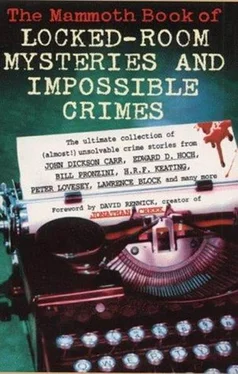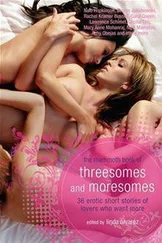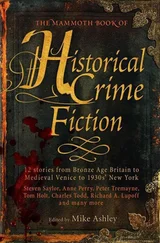Mike Ashley - The Mammoth Book of Locked-Room Mysteries And Impossible Crimes
Здесь есть возможность читать онлайн «Mike Ashley - The Mammoth Book of Locked-Room Mysteries And Impossible Crimes» весь текст электронной книги совершенно бесплатно (целиком полную версию без сокращений). В некоторых случаях можно слушать аудио, скачать через торрент в формате fb2 и присутствует краткое содержание. Жанр: Детектив, на английском языке. Описание произведения, (предисловие) а так же отзывы посетителей доступны на портале библиотеки ЛибКат.
- Название:The Mammoth Book of Locked-Room Mysteries And Impossible Crimes
- Автор:
- Жанр:
- Год:неизвестен
- ISBN:нет данных
- Рейтинг книги:3 / 5. Голосов: 1
-
Избранное:Добавить в избранное
- Отзывы:
-
Ваша оценка:
- 60
- 1
- 2
- 3
- 4
- 5
The Mammoth Book of Locked-Room Mysteries And Impossible Crimes: краткое содержание, описание и аннотация
Предлагаем к чтению аннотацию, описание, краткое содержание или предисловие (зависит от того, что написал сам автор книги «The Mammoth Book of Locked-Room Mysteries And Impossible Crimes»). Если вы не нашли необходимую информацию о книге — напишите в комментариях, мы постараемся отыскать её.
A new anthology of twenty-nine short stories features an array of baffling locked-room mysteries by Michael Collins, Bill Pronzini, Susanna Gregory, H. R. F. Keating, Peter Lovesey, Kate Ellis, and Lawrence Block, among others.
The Mammoth Book of Locked-Room Mysteries And Impossible Crimes — читать онлайн бесплатно полную книгу (весь текст) целиком
Ниже представлен текст книги, разбитый по страницам. Система сохранения места последней прочитанной страницы, позволяет с удобством читать онлайн бесплатно книгу «The Mammoth Book of Locked-Room Mysteries And Impossible Crimes», без необходимости каждый раз заново искать на чём Вы остановились. Поставьте закладку, и сможете в любой момент перейти на страницу, на которой закончили чтение.
Интервал:
Закладка:
Nick grinned, as he added: “There was no reason for me to mock you. Two murders at half-cock don’t add up to one full monty. The murder of Greta Hobbs by Paul Duncan was impossible – just as you thought, sir.”
OUT OF HIS HEAD by Thomas Bailey Aldrich
This story and the next three are a little group of early impossible crime stories to give a flavour of the past. In fact this story is one of the very earliest, the second only after Poe ’ s “The Murders in the Rue Morgue” , to feature an amateur detective seeking to solve a locked-room murder. The story is a self-contained episode in the rather rambling novel Out of His Head (1862) . Thomas Bailey Aldrich (1836-1907) was an American poet, author and editor – he edited the Atlantic Monthly from 1881 to 1890. He wrote a number of stylish and idiosyncratic novels and stories of which the most popular in his day was “Marjorie Daw” (1873) about a man who falls in love with a girl he later discovers never existed. In The Stillwater Tragedy (1880), Aldrich introduced a private detective some years before Doyle created Sherlock Holmes. Although the following is the oldest story in this anthology, it remains remarkably fresh today, a testament to Aldrich ’ s skills and inventiveness.
I
I am about to lift the veil of mystery which, for nearly seven years, has shrouded the story of Mary Ware; and though I lay bare my own weakness, or folly, or what you will, I do not shrink from the unveiling.
No hand but mine can now perform the task. There was, indeed, a man who might have done this better than I. But he went his way in silence. I like a man who can hold his tongue.
On the corner of Clarke and Crandall Streets, in New York, stands a dingy brown frame-house. It is a very old house, as its obsolete style of structure would tell you. It has a morose, unhappy look, though once it must have been a blythe mansion. I think that houses, like human beings, ultimately become dejected or cheerful, according to their experience. The very air of some front-doors tells their history.
This house, I repeat, has a morose, unhappy look, at present, and is tenanted by an incalculable number of Irish families, while a picturesque junk-shop is in full blast in the basement; but at the time of which I write, it was a second-rate boarding-place, of the more respectable sort, and rather largely patronized by poor, but honest, literary men, tragic-actors, members of the chorus, and such like gilt people.
My apartments on Crandall Street were opposite this building, to which my attention was directed soon after taking possession of the rooms, by the discovery of the following facts:
First, that a charming lady lodged on the second-floor front, and sang like a canary every morning.
Second, that her name was Mary Ware
Third, that Mary Ware was a danseuse, and had two lovers – only two.
Mary Ware was the leading lady at The Olympic. Night after night found me in the parquette. I can think of nothing with which to compare the airiness and utter abandon of her dancing. She seemed a part of the music. She was one of beauty’s best thoughts, then. Her glossy gold hair reached down to her waist, shading one of those mobile faces which remind you of Guido’s picture of Beatrix Cenci – there was something so fresh and enchanting in the mouth. Her luminous, almond eyes, looking out winningly from under their drooping fringes, were at once the delight and misery of young men.
Ah! you were distracting in your nights of triumph, when the bouquets nestled about your elastic ankles, and the kissing of your castanets made the pulses leap; but I remember when you lay on your cheerless bed, in the blank day-light, with the glory faded from your brow, and “none so poor as to do you reverence.”
Then I stooped down and kissed you – but not till then.
Mary Ware was to me a finer study than her lovers. She had two, as I have said. One of them was commonplace enough – well-made, well-dressed, shallow, flaccid. Nature, when she gets out of patience with her best works, throws off such things by the gross, instead of swearing. He was a lieutenant, in the Navy I think. The gilt button has charms to soothe the savage breast.
The other was a man of different mould, and interested me in a manner for which I could not then account. The first time I saw him did not seem like the first time. But this, perhaps, is an after-impression.
Every line of his countenance denoted character; a certain capability, I mean, but whether for good or evil was not so plain. I should have called him handsome, but for a noticeable scar which ran at right angles across his mouth, giving him a sardonic expression when he smiled.
His frame might have set an anatomist wild with delight – six feet two, deep-chested, knitted with tendons of steel. Not at all a fellow to amble on plush carpets.
“Some day,” thought I, as I saw him stride by the house, “he will throw the little Lieutenant out of that second-story window.”
I cannot tell, to this hour, which of those two men Mary Ware loved most – for I think she loved them both. A woman’s heart was the insolvable charade with which the Sphinx nipt the Egyptians. I was never good at puzzles.
The flirtation, however, was food enough for the whole neighbourhood. But faintly did the gossips dream of the strange drama that was being shaped out, as compactly as a tragedy of Sophocles, under their noses.
They were very industrious in tearing Mary Ware’s good name to pieces. Some laughed at the gay Lieutenant, and some at Julius Kenneth; but they all amiably united in condemning Mary Ware.
This state of affairs had continued for five or six months, when it was reported that Julius Kenneth and Mary Ware were affianced. The Lieutenant was less frequently seen in Crandall Street, and Julius waited upon Mary’s footsteps with the fidelity of a shadow.
Yet – though Mary went to the Sunday concerts with Julius Kenneth, she still wore the Lieutenant’s roses in her bosom.
II
One drizzly November morning – how well I remember it! – I was awakened by a series of nervous raps on my bed-room door. The noise startled me from an unpleasant dream.
“O, sir!” cried the chambermaid on the landing. “There’s been a dreadful time across the street. They’ve gone and killed Mary Ware!”
“Ah!”
That was all I could say. Cold drops of perspiration stood on my forehead.
I looked at my watch; it was eleven o’clock; I had over-slept myself, having sat up late the previous night.
I dressed hastily, and, without waiting for breakfast, pushed my way through the murky crowd that had collected in front of the house opposite, and passed up stairs, unquestioned.
When I entered the room, there were six people present: a thick-set gentleman, in black, with a bland professional air, a physician; two policemen; Adelaide Woods, an actress; Mrs Marston, the landlady; and Julius Kenneth.
In the centre of the chamber, on the bed, lay the body of Mary Ware – as pale as Seneca’s wife.
I shall never forget it. The corpse haunted me for years afterwards, the dark streaks under the eyes, and the wavy hair streaming over the pillow – the dead gold hair. I stood by her for a moment, and turned down the counterpane, which was drawn up closely to the chin.
“There was that across her throat
Which you had hardly cared to see.”
At the head of the bed sat Julius Kenneth, bending over the icy hand which he held in his own. He was kissing it.
The gentleman in black was conversing in undertones with Mrs Marston, who every now and then glanced furtively toward Mary Ware.
Читать дальшеИнтервал:
Закладка:
Похожие книги на «The Mammoth Book of Locked-Room Mysteries And Impossible Crimes»
Представляем Вашему вниманию похожие книги на «The Mammoth Book of Locked-Room Mysteries And Impossible Crimes» списком для выбора. Мы отобрали схожую по названию и смыслу литературу в надежде предоставить читателям больше вариантов отыскать новые, интересные, ещё непрочитанные произведения.
Обсуждение, отзывы о книге «The Mammoth Book of Locked-Room Mysteries And Impossible Crimes» и просто собственные мнения читателей. Оставьте ваши комментарии, напишите, что Вы думаете о произведении, его смысле или главных героях. Укажите что конкретно понравилось, а что нет, и почему Вы так считаете.










